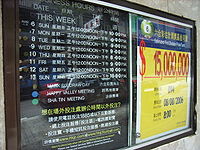
A lottery is a form of gambling that involves the drawing of numbers at random for a prize. Some governments outlaw lotteries, while others endorse it to the extent of organizing a national or state lottery. It is common to find some degree of regulation of lottery by governments. The most common regulations are prohibition of sale to minors and licensing of ticket vendors. Although lotteries were common in the United States and some other countries during the 19th century, by the beginning of the 20th century, most forms of gambling, including lotteries and sweepstakes, were illegal in the U.S. and most of Europe as well as many other countries. This remained so until well after World War II. In the 1960s, casinos and lotteries began to re-appear throughout the world as a means for governments to raise revenue without raising taxes.
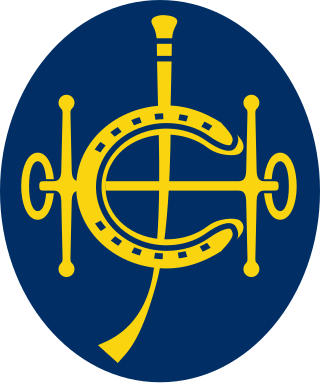
The Hong Kong Jockey Club (HKJC) was founded in 1884 and is one of the oldest institutions in Hong Kong. In 1960, it was granted a royal charter and renamed The Royal Hong Kong Jockey Club (英皇御准香港賽馬會). The institution reverted to its original name in 1996 due to the handover of Hong Kong in 1997. Membership of the club is by nomination and election.
Powerball is an American lottery game offered by 45 states, the District of Columbia, Puerto Rico and the U.S. Virgin Islands, and overseen by the Multi-State Lottery Association (MUSL), which also manages other large jackpot games such as the Mega Millions. Drawings are held three times weekly on Mondays, Wednesdays, and Saturdays at 10:59 p.m. Eastern Time, at the Florida Lottery's headquarters in Tallahassee.
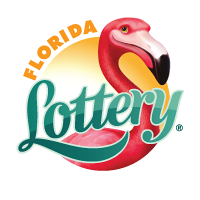
The Florida Lottery is the government-operated lottery of the U.S. state of Florida. As of 2022, the lottery offers eleven terminal-generated games: Cash4Life, Mega Millions, Powerball, Florida Lotto, Pick 2, Pick 3, Pick 4, Pick 5, Fantasy 5, Cash Pop, and Jackpot Triple Play. Participants must be 18 or older to play.
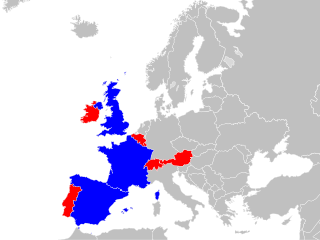
EuroMillions is a transnational lottery that requires seven correct numbers to win the jackpot, which consists of 5 main numbers and 2 Lucky Star Numbers. It was launched on 7 February 2004 by France's Française des Jeux, Spain's Loterías y Apuestas del Estado and the United Kingdom's Camelot group. The first draw was held on 13 February 2004 in Paris. Initially, only the UK, France and Spain participated, with the Austrian, Belgian, Irish, Luxembourgish, Portuguese and Swiss lotteries joining for the 8 October 2004 draw.
Lotteries in Australia include various lottery related products licensed by The Lottery Corporation, The Lottery Office and Lotterywest Australian lottery companies. Lotteries operators are licensed at a state or territory level, and include both state government-owned, not-for-profit and private sector companies. Most major Lotteries have now moved into the online marketplace.
4-Digits is a lottery in Germany, Singapore, and Malaysia. Individuals play by choosing any number from 0000 to 9999. Then, twenty-three winning numbers are drawn each time. If one of the numbers matches the one that the player has bought, a prize is won. A draw is conducted to select these winning numbers. 4-Digits is a fixed-odds game.

North Carolina has one of the United States' youngest lottery systems, having been enacted in 2005. The North Carolina State Lottery Act created the 9-member Lottery commission who was charged with overseeing all aspects of the education lottery. 100% of North Carolina Lottery net proceeds go directly to benefit the state's education, with the current figure sitting at more than $10 billion since its inception in 2006. By law, lottery funds go to pay for school construction, need-based college financial aid, transportation, salaries for non-instructional support staff, and pre-kindergarten for at-risk four-year-olds. The State Lottery Act outlines how each and every dollar produced by the lottery will be spent. The revenue distributions are as follows: 51% was paid out in prizes, 38% was transferred into the education fund, 7% was paid to the retailers who sold lottery tickets, and 4% went to general lottery expenses.
PCSO Lottery Draw is a Philippine television game show broadcast by PTV/NBN, IBC and D8TV (BEAM) under the joint venture between PCSO, IBC and Digital8. The show aired daily, it aired originally on PTV/NBN from March 8, 1995 to July 27, 2019 and again from July 31, 2019 to December 30, 2024. The show moved to IBC and D8TV since December 31, 2024. The program's production involving the PCSO workforce consisting of more than 2,000 employees. The program consists of the drawing of both the parimutuel and fixed payout lottery games and the sweepstakes games. On November 15, 2017, it added the centralized draws of the Small Town Lottery for the provinces that did not conduct their own local STL draws.
The Montana Lottery is run by the government of Montana. It is a member of the Multi-State Lottery Association (MUSL). The Montana Lottery's portfolio consists of scratch tickets, plus Mega Millions, Powerball, Lotto America, Montana Millionaire, Lucky for Life, Big Sky Bonus, Montana Sports Action, Treasure Play and Montana Cash.
The West Virginia Lottery is run by the government of West Virginia. It was established in 1984 via a voter referendum. It is a charter member of the Multi-State Lottery Association (MUSL). The Lottery offers games such as Lotto America, Powerball, Mega Millions, and scratch tickets. West Virginia has reinterpreted the amendment to its Constitution that permitted its lottery to include casinos, and thus the West Virginia Lottery Commission also regulates slot machines, which are marketed as "video lottery" and available at several hundred businesses; and five "lottery table games" casinos.

The Connecticut Lottery Corporation, also called the CT Lottery, is the official lottery in Connecticut. It was created in 1971 by then-Gov. Thomas Meskill, who signed Public Act No. 865. The first tickets were sold on February 15, 1972. The Connecticut Lottery offers several in-house drawing games; Connecticut also participates in Mega Millions and Powerball; each are played in 44 states, the District of Columbia, and the U.S. Virgin Islands.
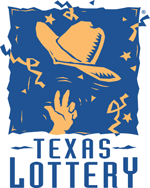
The Texas Lottery is the government-operated lottery available throughout Texas. It is operated by the Texas Lottery Commission, headquartered in downtown Austin, Texas.
The New Jersey Lottery is run by the U.S. state of New Jersey. Its In-house draw games are Pick-3, Pick-4, Jersey Cash 5, Pick-6, Quick Draw, and Cash Pop. Its multi-jurisdictional draw games are Cash4Life, Mega Millions, and Powerball. The Lottery also sells Fast Play and scratch-off tickets. The New Jersey Lottery is headquartered at One Lawrence Park Complex in Lawrence Township, Mercer County.
The Michigan Lottery was initiated under the authority of Public Act 239 in 1972, and collects funds to support Michigan's public school system.

The Rhode Island Lottery is run by the government of Rhode Island. The modern form of the Rhode Island Lottery was inaugurated in 1974, following a constitutional amendment passed in 1973. It is a charter member of the Multi-State Lottery Association (MUSL). Rhode Island Lottery games include Mega Millions, Powerball, Wild Money, Keno, and scratch tickets. The Rhode Island Lottery also offers online lottery games and oversees and regulates video lottery as well as sports betting.

The Illinois State Lottery is an American lottery for the U.S. state of Illinois, operated by Allwyn Illinois.

The Colorado Lottery is run by the state government of Colorado. It is a member of the Multi-State Lottery Association(MUSL).
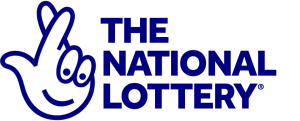
The National Lottery is the state-franchised national lottery established in 1994 in the United Kingdom. It is regulated by the Gambling Commission, and is operated by Allwyn Entertainment, who took over from Camelot Group on 1 February 2024.
TVB Finance, Sports & Information Channel was a Cantonese-language free-to-air terrestrial television channel in Hong Kong. Owned by Television Broadcasts Limited (TVB), it first launched on 31 December 2007 as TVB HD Jade, before relaunching as TVB J5 on 22 February 2016.
